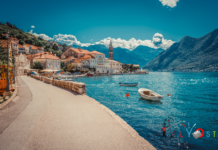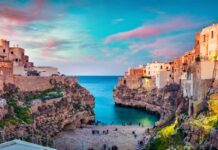One of the most heavily visited cities in the world, Rome, Italy is a favorite of travelers who appreciate history, architecture and culture. Among the must-see attractions in the “Eternal City” are ancient ruins, fabulous basilicas and famous works of art. Here is a look at the top 10 things to see and do in Rome.
1. St. Peter’s Basilica
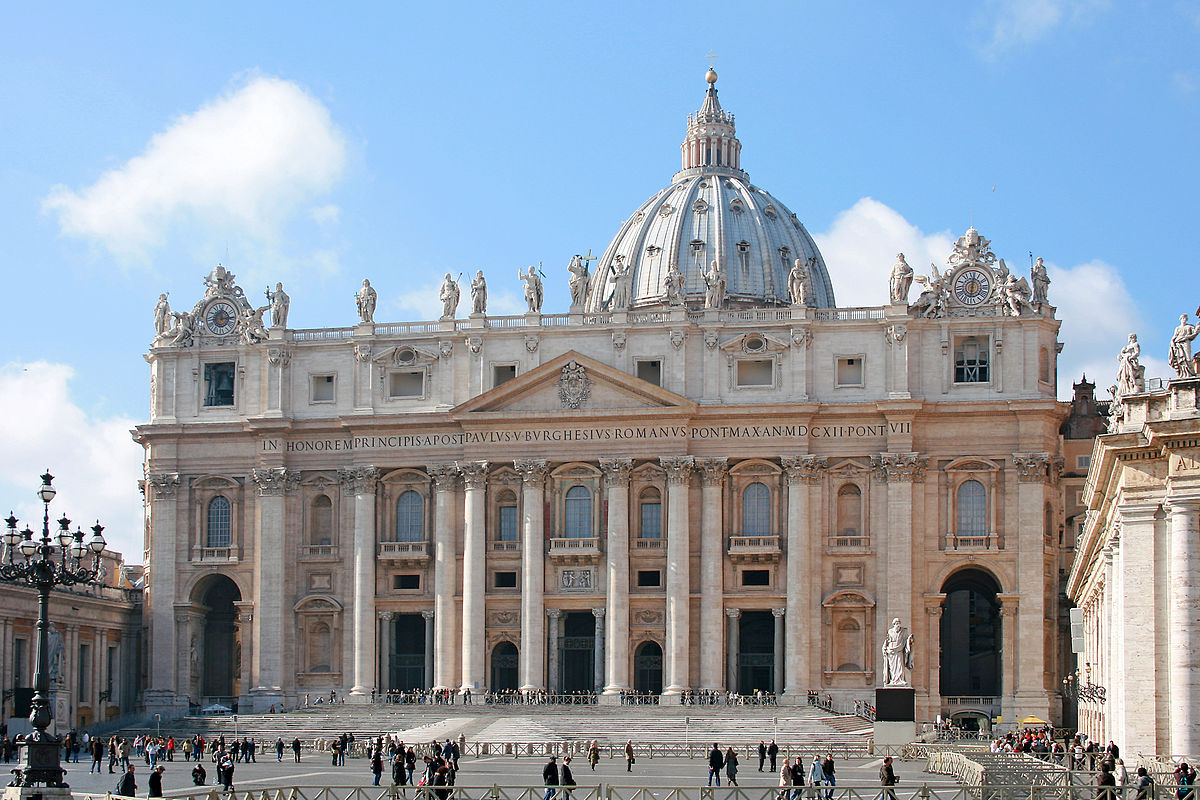
This Italian Renaissance cathedral, the largest Christian basilica on Earth, is instantly recognizable because of its huge dome and row of tall columns. Inside is a dazzling collection of art by Michelangelo and other masters. The mammoth structure anchors one side of St. Peter’s Square, which features beautiful fountains and columns. St. Peter’s Basilica can be reached by using the Rome Metro Line A and getting off at the Ottaviano – San Pietro stop. From there it’s about a 10 minute walk to get to the entrance of St Peter’s Square.
2. Colosseum
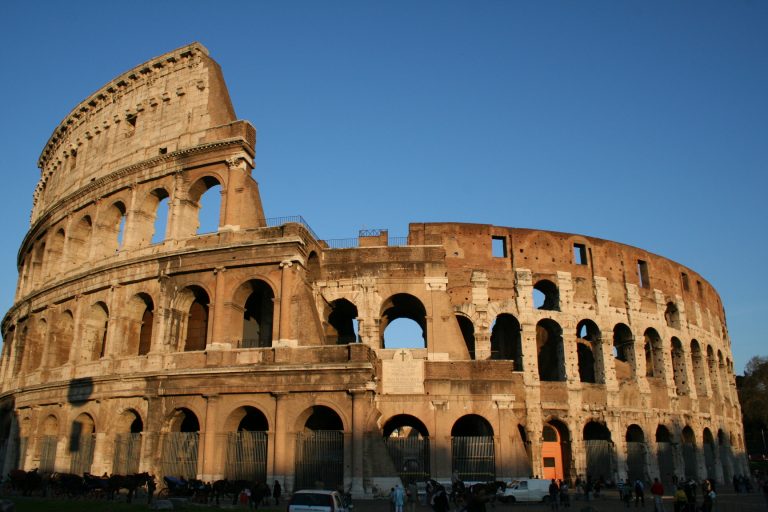
Initially created for gladiator competitions, the triple-level Colosseum is the biggest in the world. It is the best-known example of Roman Empire architecture still standing. The oval arena, with 80 arched entrances, was erected in 80 AD.
3. Pantheon
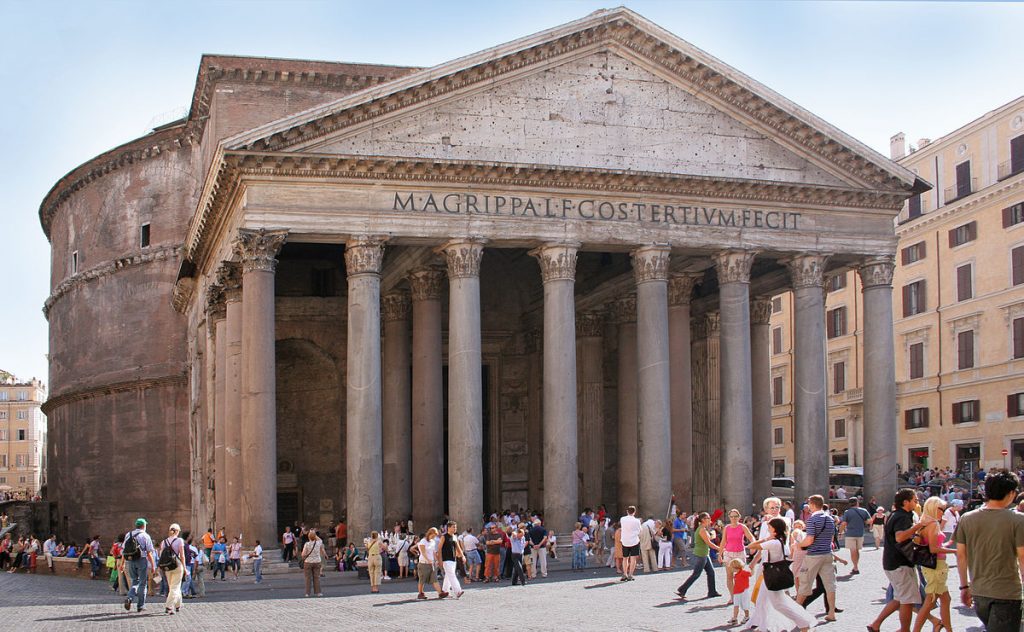
A temple built between 118 and 125 AD, this ruin holds the graves of Raphael and other classic Renaissance figures. The best preserved of Rome’s ancient monuments, the basilica is characterized by its immense dome with a hole in the top. It is the largest unsupported dome on the planet.
Related: Top Things To See In Venice, Italy
4. Vatican Museums
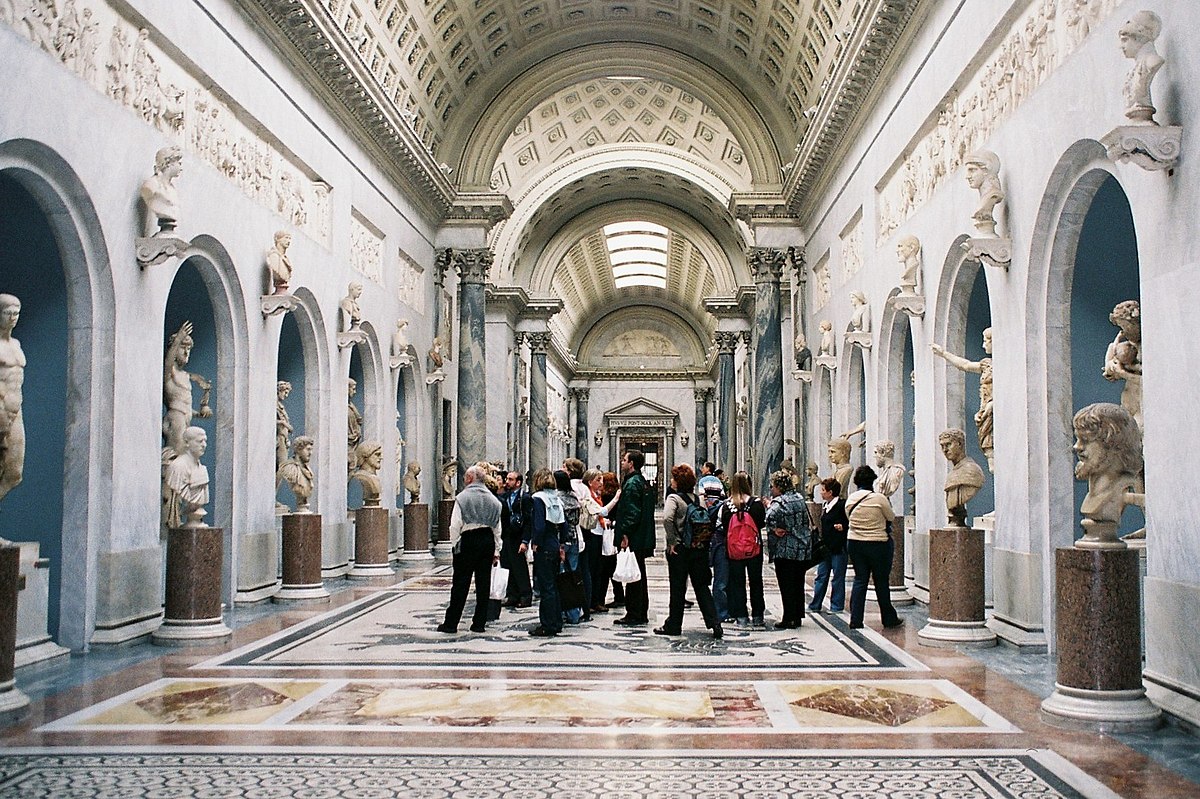
This papal palace boasts several galleries showcasing Renaissance and classical art and artifacts from ancient Rome, Egypt and Greece. The site’s most celebrated feature, the Sistine Chapel, is where Michelangelo created his famous ceiling painting in the 1500s.
Vatican, Sistine Chapel, St. Peter’s Tour Tickets
5. Roman Forum
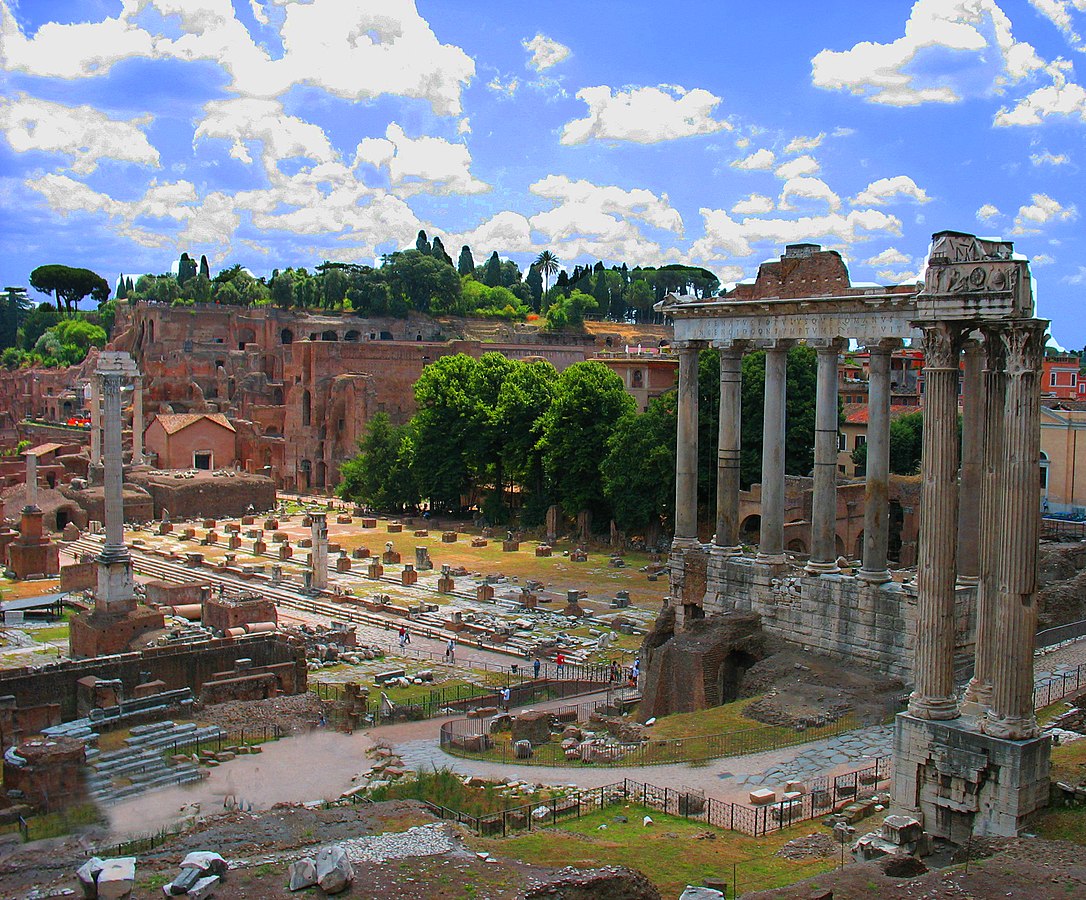
The center of ancient Rome’s public and religious life, this ruin has temples, arches and columns from the second and third centuries. Little remains of the Basilica of Maxentius and Constantine, but visitors can still appreciate its massive size.
6. Trevi Fountain
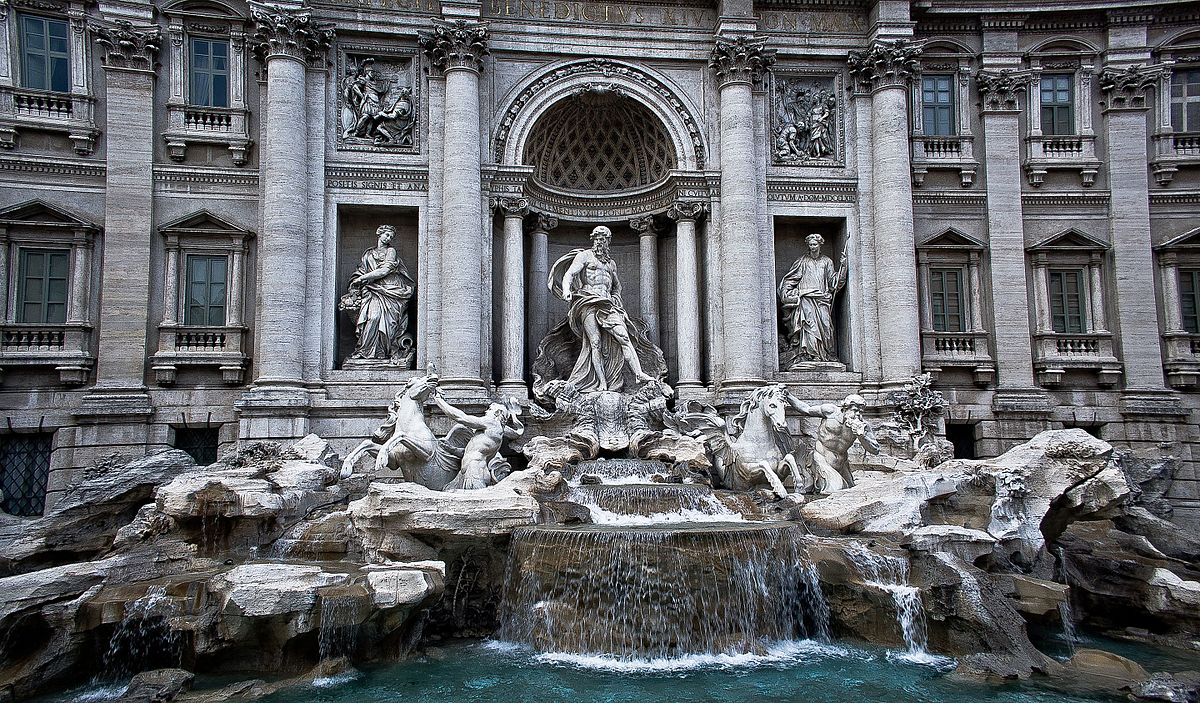
Rome offers many amazing waterworks, but none is more iconic that the 18th century Trevi Fountain. It is the biggest Baroque fountain in Rome, and widely considered one of the most elegant fountains anywhere. Local legend has it that by tossing a coin into the water, people can ensure they will return to Rome some day.
7. Spanish Steps
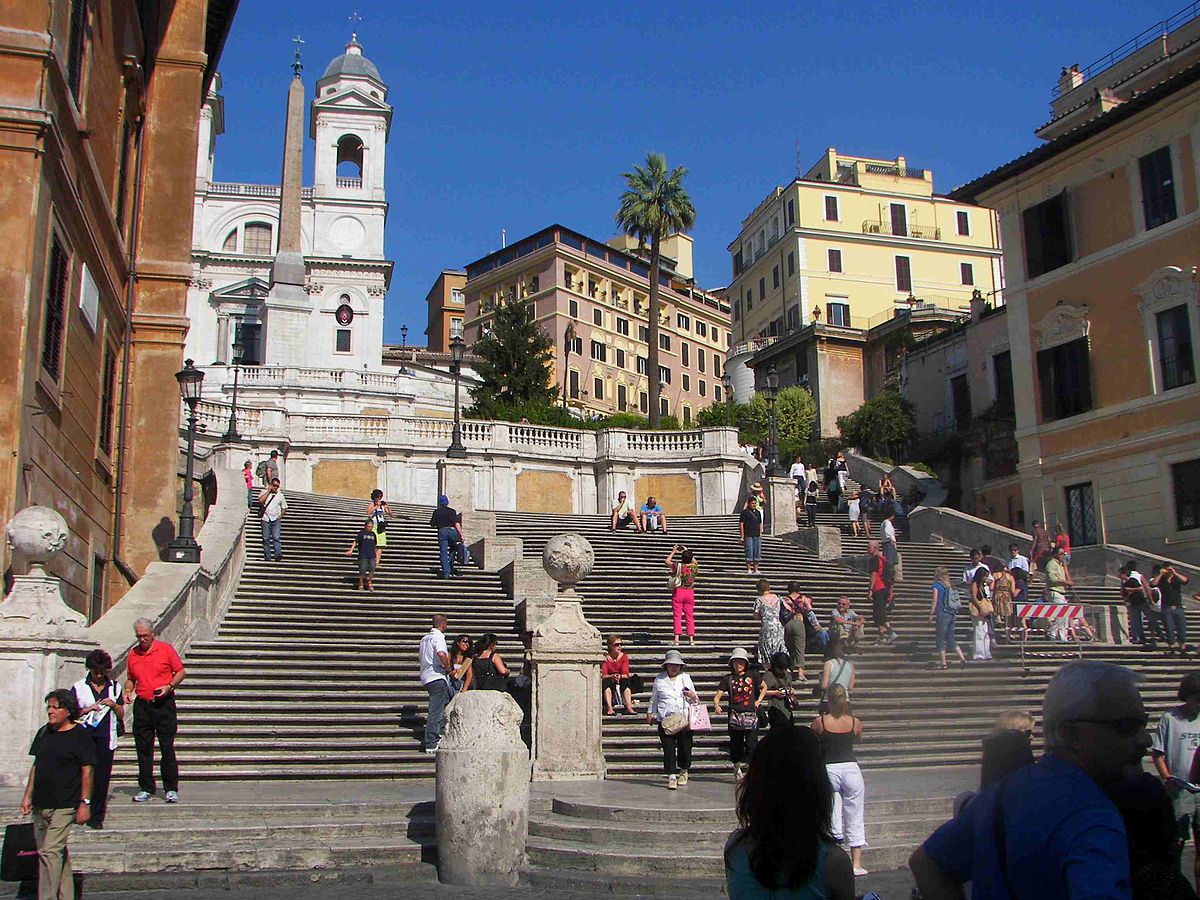
Another magnificent example of the Baroque style, the Spanish Steps are the best-known stairway in the world. The 138 steps, with their butterfly-shaped design, date to the 18th century. There are curved and straight flights, with terraces and lookout points.
8. Piazza Navona
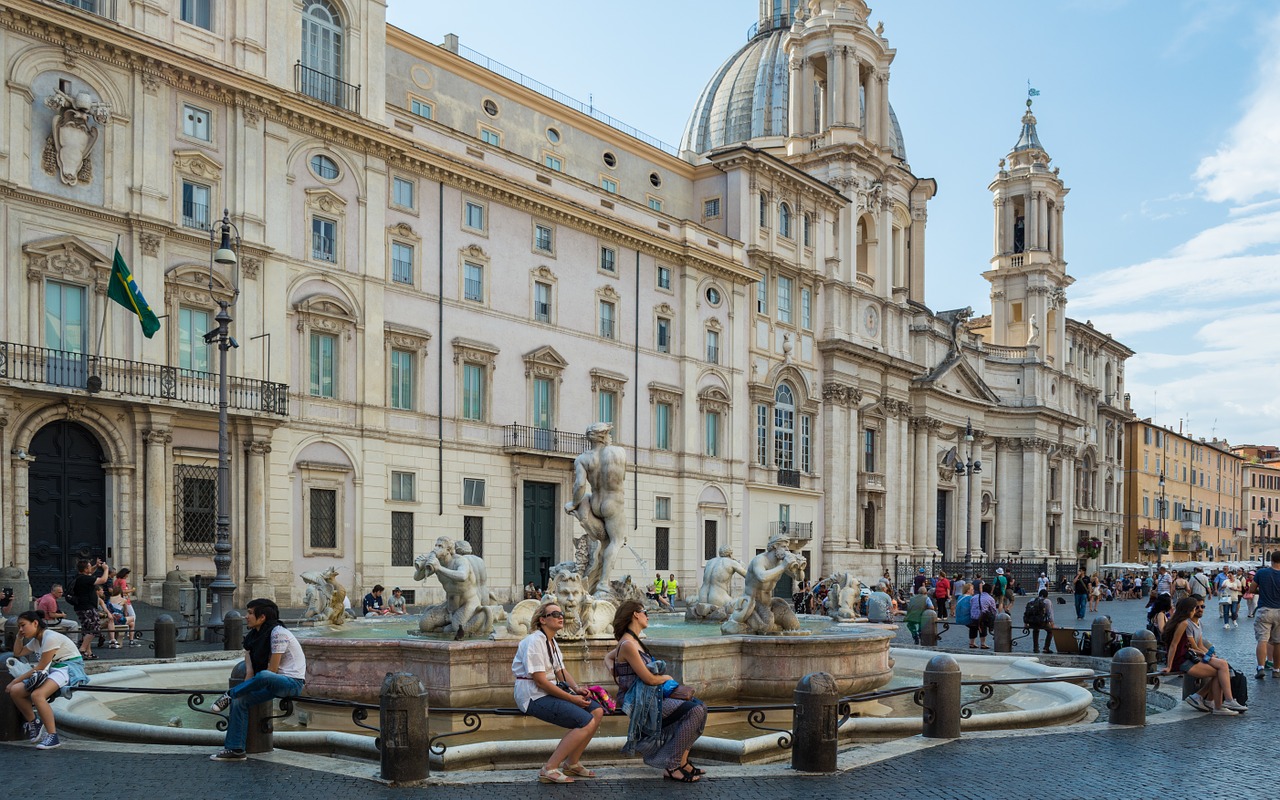
One of the many lovely squares in Rome, the Piazza Navonba stands out because of its three classical fountains. The biggest one is the Fountain of the Four Rivers, created in the 1600s. The plaza, built in the first century on the site of an ancient stadium, is now a center for bars and street artists.
9. Castel Sant’Angelo
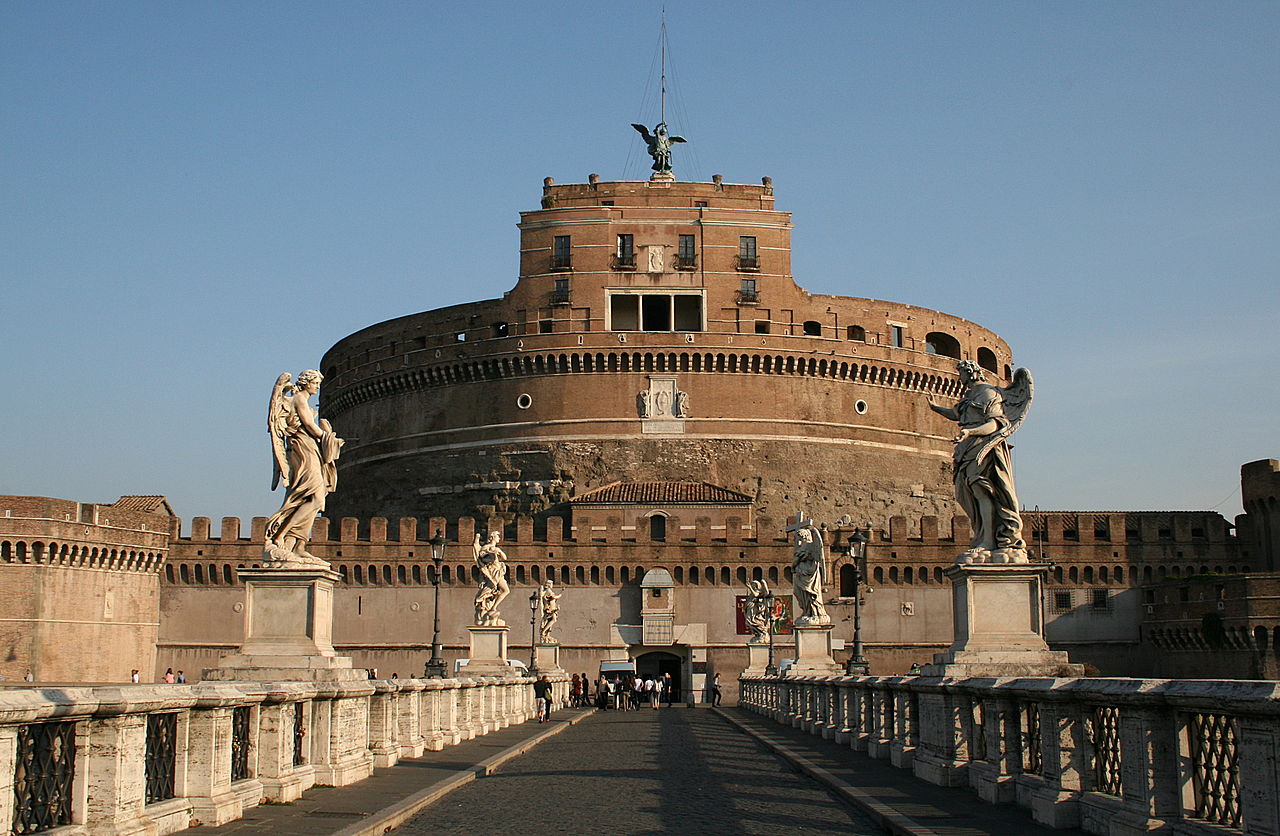
A cylindrical castle and museum erected in the second century, this spectacular building displays furnishings, frescoes and weapons from the Renaissance period. The fortress, on the banks of the Tiber River, is a former prison with a spiral ramp that leads to all five floors.
10. Palatine Hill
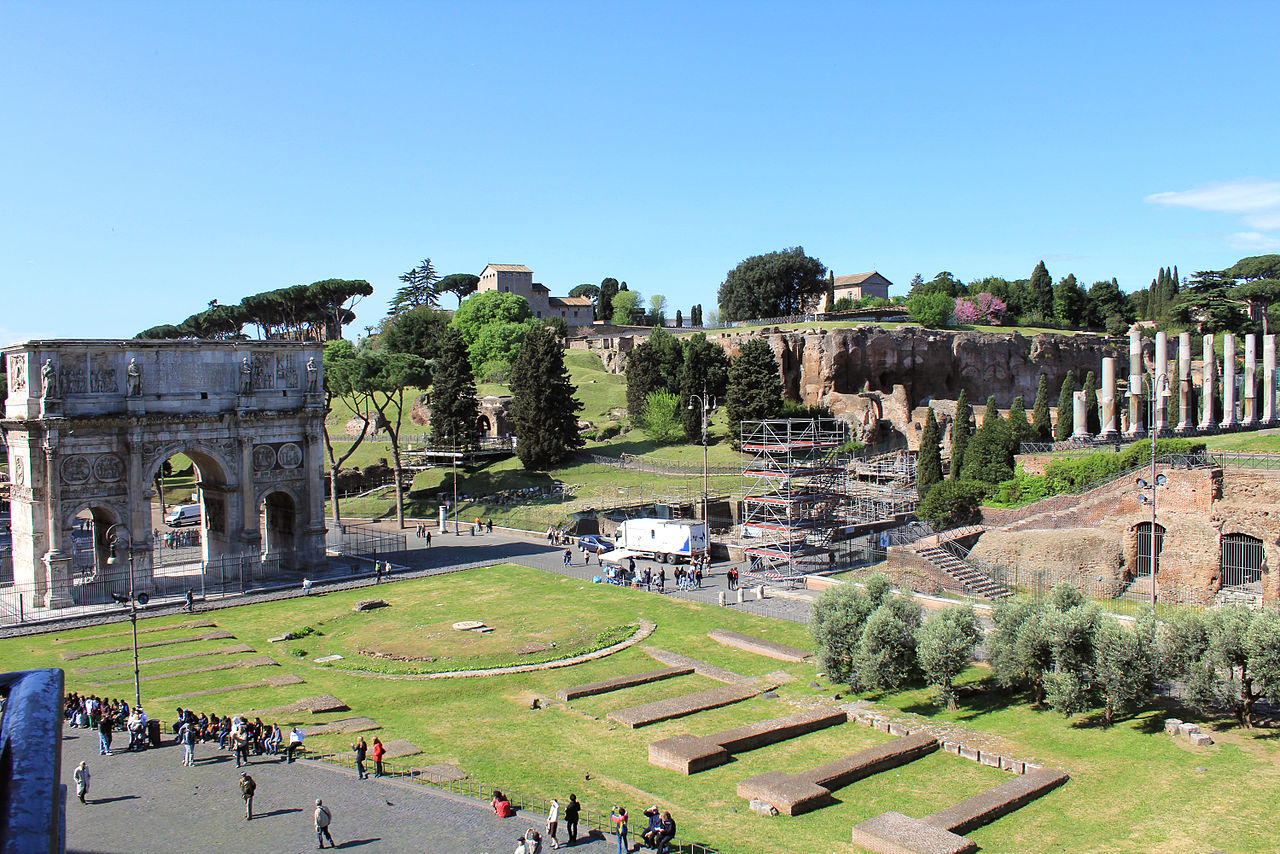
High above the Roman Forum, this is the former site of palaces and temples. It is central to the legend of Romulus and Remus. The hill, with its Farnese Gardens, is a scenic place for a picnic.
Bonus: 7 Tours and Activities You Can Do In Rome
Few visitors are lucky enough to spend enough time in Rome to enjoy all the activities that are available.
The city offers adventures for history buffs, food lovers, shoppers, late-night revelers, music and theater fans, and families with young children. Here is a review of some of the things to do in Rome.
1. Rome Tours and Excursions
To make sure you get all the iconic attractions into your itinerary, take a walking tour of ancient sites such as the Colosseum, Roman Forum and Palatine Hill. There are also guided tours of St. Peter’s Cathedral and the Vatican Museums.
Another tour stops at shops serving samples of gelato, Italy’s delicious ice cream. A restored, 1947 tram is a rolling restaurant with jazz musicians, food and beer that passes many famous sites. You can hike into underground tunnels known as the Catacombs, the final resting places of popes and saints. One of the burial vaults dates to the 2nd century AD. Thirteen-hour day trips on buses lead to the ruins of Pompeii and the gorgeous Amalfi Coast.
2. Live Performances
Multiple theaters and opera houses stage musical and dramatic shows. The Argentine Theater has been hosting operas since the early 19th century. A much more contemporary facility, Auditorium Parco Della Musica, is an outdoor amphitheater with three concert halls. The New Congress Centre is another modern structure. It consists of an unusual performance space called the “Cloud,” as well as a hotel and and conference hall.
Two theaters focus on puppet shows. At the Accettella Marionette Theatre, puppeteers recite Italian myths, legends and fables. Shows at San Carlino involve hand puppets, musicians and dancers that interact with the audience.
3. Sample Roman Cuisine
People all over the world love Italian food. There is no better place than Rome to get the real thing. It all starts with pasta, from spaghetti to rigatoni to many other varieties.
Chefs use chicken, pork and lamb, but vegetables and fruits dominate most dishes. Among the widely used veggies are artichokes, zucchini and scallops. They are cooked in olive oil, and flavored with herbs and garlic. Of course, there are also the original versions of pizza. One type, pizza alla Romano, is white and fluffy with a healthy dose of rosemary seasoning.
Rome’s restaurants, called trattorie, range from eateries serving the region’s traditional and modern cuisine to those specializing in Tuscan, Bolognese, French and international cuisine. There are seafood cafes and bakeries, as well.
4. Experience Roman Nightlife
The city’s bars, discos, lounges and pubs host musical performances reflecting myriad genres. Bands play jazz, blues, rock, punk rock, reggae, house music, techno, rockabilly and world music. There is even a Hard Rock Cafe.
Many nightclubs have restaurants, and many offer craft beer and wine. The Testaccio quarter is teaming with places to eat, drink, hear live music and dance. San Lorenzo is a bohemian neighborhood with nightclubs, art galleries and craft shops.
5. Shopping In Rome
Rome has few malls and large department stores, but small shops and street stalls are everywhere. The city has a reputation for its leather goods, like shoes and bags. Tourists also buy Murano glass, silk scarves, jewelry, balsamic vinegar, olive oil, cheeses and chocolates.
The City Centre features interesting architecture, the boutiques of top fashion designers, and stores selling jewelry and china. Trendy clothes are available at Via Condotti, a short walk from the Spanish Steps. Fresh vegetables and fruits, baked goods, cheeses, oils, honey and wine are found at the Ostia Organic Market. Another outdoor food venue is the Castelli Romani Farmers Market.
6. Parks In Rome
You can take a break from touring the city by relaxing, walking or bicycling at a public park. The lovely Parco Delle Tombe Di Via Latina has a flagstone road that leads through a lush setting with waterfalls to sepulchres (small stone burial monuments). The Sepolcro dei Pancrazi is adorned with mosaics, frescoes and stuccos from the 2nd century AD.
At the Parco Degli Aquedotti, there are ancient buildings, vineyards and seven aqueducts – one of which, built in 1595, is still in operation. The Vatican Gardens, where popes have gone for reflection since the 1200s, makes up two-thirds of Vatican City. The Biopark is a garden with a zoo that houses more than 200 wildlife species from around the world, plus restaurants, a picnic area and a playground.
7. Things For Kids To Do In Rome
Older children get a lot out of the historic attractions and other sites of Rome. There are additional options for younger kids. Leneur Park has merry-go-rounds and a Ferris wheel among its rides. At Rainbow Magicland, youngsters choose from 35 attractions – including roller coasters and other rides, theaters, water ballets, and fireworks displays.
Children can climb 551 steps into the dome atop St. Peter’s Cathedral, pose for pictures with the Swiss guards outside the church, learn how to make make pizza at a trattoria, ride bikes on the ancient Appian Way road through the countryside, row boats at a lake in a park, and be outfitted with tunics and training swords for lessons in being a gladiator.
Originally published on flyost.com



